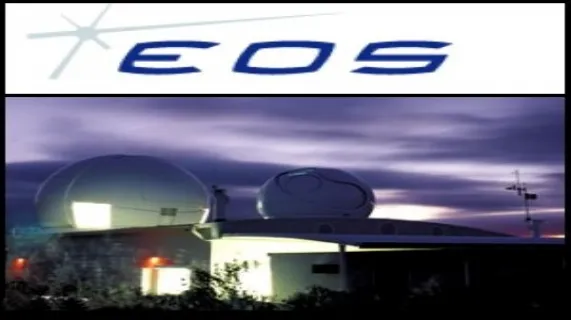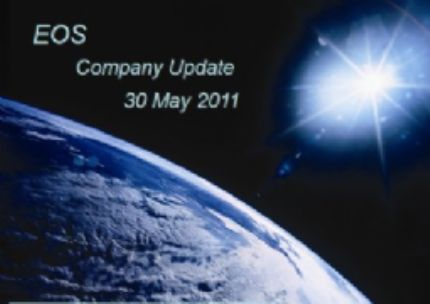
Electro Optic Systems Holdings Limited (ASX:EOS) To Build The First Automated Space Debris Tracker In The World
Sydney, July 19, 2010 AEST (ABN Newswire) - Electro Optic Systems Holdings Limited ( ASX:EOS) (
ASX:EOS) ( PINK:EOPSF) has been awarded a A$4.04 million grant from the Australian Space Research Program ("ASRP") to develop the world's first automated, high-precision, laser-based, space debris tracking system.
PINK:EOPSF) has been awarded a A$4.04 million grant from the Australian Space Research Program ("ASRP") to develop the world's first automated, high-precision, laser-based, space debris tracking system.
Innovation Minister Senator Kim Carr announced the award on 14 July 2010.
"Australia has a proud history in space science and research. The ASRP helps us expand our already important role in international partnerships," Senator Carr said.
"Modern space science and exploration is all about countries working together, and Australia has a great reputation in collaborating and leading new space research."
The grant was awarded to a consortium led by EOS subsidiary, EOS Space Systems Pty Limited, and which includes the Defence Science and Technology Organisation, Australian National University, and Global Near Space Services Inc [USA]. The consortium will apply the grant towards the estimated A$9 million cost of enhancing EOS' current space debris tracking capabilities at Mount Stromlo to meet current and future space debris tracking requirements.
The project will be led by EOS Space Systems, whose Chief Executive Craig Smith said:
"Current space surveillance and tracking systems cannot determine orbits in space with sufficient accuracy to cost-effectively mitigate collisions between satellites and space debris. This project will demonstrate responsive, high precision laser and optical tracking of space debris, improved space situational awareness for key space assets, and fully remote and automated operation of a high performance laser tracking system."
"These new features, to be demonstrated from 2012, can significantly reduce the cost of providing debris protection to satellites, and will ease the integration of the capability into the operational processes of key users."
Speaking after the Minister's comments, the Chief Executive of EOS, Ben Greene said:
"EOS is a world leader in laser tracking of space debris, and from 2003-2007 we undertook important international demonstrations that showed our laser and optical technologies could meet the threat from space debris. Over the past few years EOS has refined its designs to reduce costs and improve responsiveness."
"This project will position EOS and its partners with an affordable and deployable solution to the space debris threat."
"The advances to be demonstrated by the consortium using this ASRP funding have been specified to meet current operational needs in space. The project's performance and cost targets conform to business models developed with key space customers for larger-scale applications."
In a related development, ASRP funds of A$4.673m were awarded to a consortium to develop prototype space-based laser ranging hardware, intended to be flown on NASA's GRACE ("Gravity Recover and Climate Experiment") Follow-on mission, scheduled for launch in 2016.
EOS is also a participant in this consortium, which is led by the Australian National University. The other consortium members are CSIRO, the Jet Propulsion Laboratory of the Californian Institute of Technology [USA], Max Planck Institute for Gravitational Physics (Albert Einstein Institute) [Germany], and the National Measurement Institute.
Contact
Dr Craig Smith
Ph: +61-414-365-368
Dr Ben Greene
Ph: +61-414-365-658
www.eos-aus.com
| ||
|







